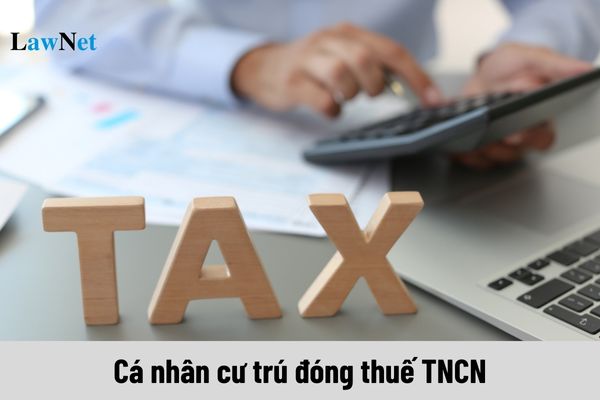What are regulations on the determination of Vietnamese residents for personal income tax?
What are regulations on the determination of Vietnamese residents for personal income tax?
Based on Article 1 of Circular 111/2013/TT-BTC as amended by Article 2 of Circular 119/2014/TT-BTC as follows:
Tax Payers
Tax payers are resident and non-Vietnamese residents as stipulated in Article 2 of the Personal Income Tax Law, Article 2 of Decree No. 65/2013/ND-CP dated June 27, 2013, of the Government of Vietnam detailing several articles of the Personal Income Tax Law and the Law amending and supplementing several articles of the Personal Income Tax Law (hereinafter referred to as Decree No. 65/2013/ND-CP), who have taxable income as defined in Article 3 of the Personal Income Tax Law and Article 3 of Decree No. 65/2013/ND-CP.
The scope for determining taxable income for taxpayers is as follows:
For Vietnamese residents, taxable income is income arising inside and outside the territory of Vietnam, regardless of the place of payment;
For individuals who are citizens of a country or territory that has signed an Agreement with Vietnam on avoiding double taxation and preventing tax evasion on income taxes and are Vietnamese residents in Vietnam, personal income tax obligations are calculated from the month they arrive in Vietnam if it’s their first time to the month the employment contract ends and they leave Vietnam (calculated fully by the month) without needing to undertake consular confirmation procedures to benefit from non-double taxation under the double taxation agreement between the two countries.
For non-Vietnamese residents, taxable income is income arising in Vietnam, regardless of the place of payment and receipt.
...
Thus, according to the above regulations, a tax payer is a Vietnamese resident when they meet any of the following conditions:
- Present in Vietnam for 183 days or more calculated within a calendar year or within 12 consecutive months from the first day present in Vietnam, where the day of arrival and day of departure count as one day.
- Have a regular residence in Vietnam in one of the following two cases:
+ Have a regular residence as regulated by law on residency;
+ Have rented accommodation in Vietnam in accordance with housing law, with lease contracts totaling 183 days or more in the tax year;
In cases where an individual has a regular residence in Vietnam as per the above regulations but is actually present in Vietnam for less than 183 days in the tax year, and the individual cannot prove residency of another country, they are considered resident in Vietnam.
Proof of residency in another country is based on the Residency Certificate. In cases where an individual is from a country or territory having a tax treaty with Vietnam that does not regulate issuing Residency Certificates, the individual shall provide a photocopy of their Passport to prove the period of residency.

What are regulations on the determination of Vietnamese residents for personal income tax?(Image from the Internet)
When is personal income tax payable?
According to Clause 1 of Article 21 of Personal Income Tax Law 2007, as amended by Clause 5 of Article 1 of Amended Personal Income Tax Law 2012, it is regulated as follows:
Taxable Income
1. Taxable income from business, salaries, and wages is the total taxable income defined in Articles 10 and 11 of this Law, minus contributions for social insurance, health insurance, unemployment insurance, professional liability insurance for certain sectors mandatory to participate in, voluntary pension funds, and deductions stipulated in Articles 19 and 20 of this Law.
...
In Article 1 of Resolution 954/2020/UBTVQH14, the following regulations apply:
Family Circumstance-Based Deductions
Adjust family circumstance-based deductions as prescribed in Clause 1 Article 19 of the Personal Income Tax Law No. 04/2007/QH12, as amended and supplemented by Law No. 26/2012/QH13 as follows:
1. The deduction for a taxpayer is 11 million VND/month (132 million VND/year);
2. The deduction for each dependent is 4.4 million VND/month.
Simultaneously, as stipulated in Point i Clause 1 Article 25 of Circular 111/2013/TT-BTC, workers without dependents must pay personal income tax if their total income from salaries and wages exceeds 11 million VND/month (132 million VND/year), after deducting mandatory insurance contributions and other contributions like charity, humanitarian, and tax-exempt items.
For individuals without a labor contract or with a contract under three months where the total payment is 2 million VND or more per instance, a withholding tax of 10% on income before payment is required.
If an individual only has income subject to withholding tax at the rate stated but estimates the total taxable income after deductions for family circumstances does not reach the taxable threshold, they must commit in writing to the income-paying organization as a basis for not temporarily withholding personal income tax.
What income shall be declared separately in Vietnam?
Under Point b Clause 1 Article 7 of Personal Income Tax Law 2007, as amended by Clause 3 Article 1 of Amended Personal Income Tax Law 2012, it is regulated as follows:
Tax Assessment Period
1. Tax assessment period for Vietnamese residents is regulated as follows:
a) Annual tax assessment applies to income from business; income from salaries and wages;
b) Tax assessment per income occurrence applies to income from capital investment; income from capital transfer, excluding securities transfer income; income from real estate transfer; winnings; royalties; franchise income; inheritance; and gifts;
c. Tax assessment per transfer or annually for income from securities transfer.
2. For non-Vietnamese residents, tax is assessed per income occurrence applicable to all taxable incomes.
The tax assessment per income occurrence for Vietnamese residents applies to the following incomes:
- Income from capital investment;
- Income from capital transfer, excluding securities transfer; income from real estate transfer; winnings; royalties; franchise income; inheritance; gifts.

